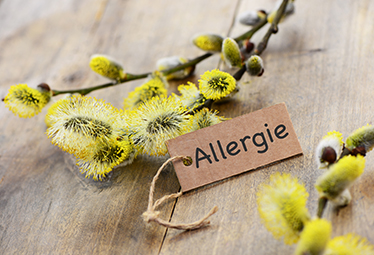 With the return of fine weather, seasonal allergies, also known as hay fever, make their appearance. Affecting people of all ages, these allergies are mainly due to pollens from different plants that are released at different times of the year. These symptoms can vary considerably from one region of France to another, due to specific climatic and botanical features.
With the return of fine weather, seasonal allergies, also known as hay fever, make their appearance. Affecting people of all ages, these allergies are mainly due to pollens from different plants that are released at different times of the year. These symptoms can vary considerably from one region of France to another, due to specific climatic and botanical features.
The main allergenic pollens :
- Trees (February to May): birch, ash, plane and oak pollens dominate in spring. Birch is particularly well known for its high allergenic potential.
- Grasses (May to July): these pollens peak in late spring and early summer, causing sneezing and watery eyes in sensitive people.
- Grasses (August to October): ragweed, which flourishes in late summer and early autumn, is a particular concern in certain regions such as the Rhône Valley.
What are the main symptoms of hay fever?
- Frequent sneezing and runny or blocked nose
- Itchy nose, ears and eyes
- Red, watery eyes
- Irritated throat and cough
- Fatigue due to disturbed sleep
These symptoms are the result of the body's immune response to pollen inhalation, treating these particles as a threat.
Why do people become allergic?
Allergies can develop at any age due to increased exposure to allergens, environmental changes, or changes in the immune system. Moving to new areas with different types of pollen is also a common cause.
Are allergy cases on the increase?
Rising temperatures due to climate change are lengthening pollination seasons, increasing the duration and intensity of exposure to pollen. In addition, urbanisation and pollution can exacerbate allergic reactions, making more people sensitive to allergens.
Prevention and treatment strategies :
- Consult the allergen-pollen bulletins: these bulletins allow you to monitor pollen levels and adapt your activities to minimise exposure.
- Preventive measures: keep windows closed, use air purifiers and wear sunglasses to block pollen.
- Natural remedies: use nasal rinses, consume local honey for desensitisation, and acupuncture to reduce symptoms.
- Diet: a diet rich in fruit, vegetables and oily fish can help boost the immune system.
Seasonal allergies require an understanding of the different sources of pollen and their release periods, which are specific to each region. By adopting simple solutions to prevent and treat symptoms, it is possible to minimise their impact and enjoy each season to the full without the inconvenience of allergies.
